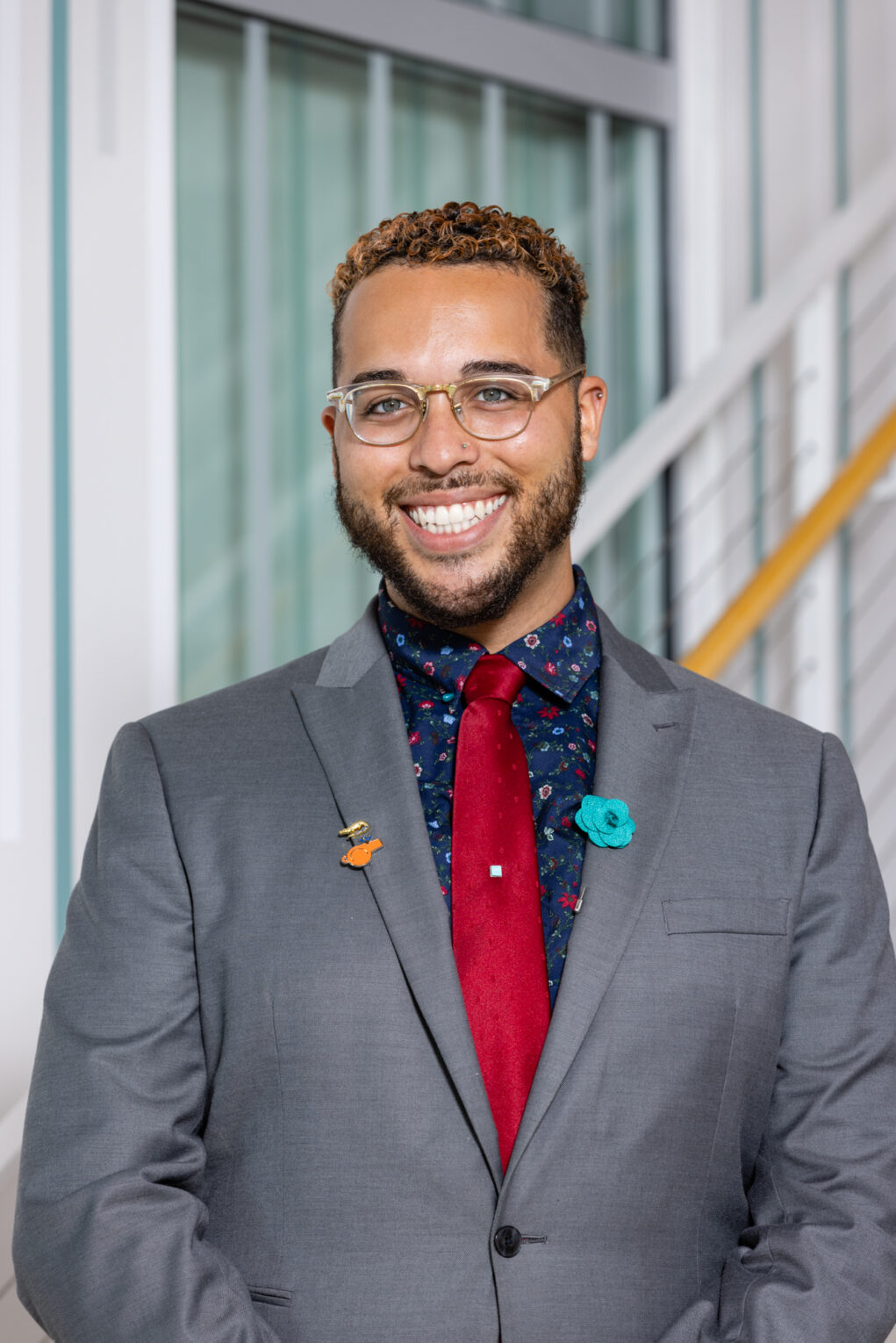Whether you are a firefighter, paramedic, or other EMS provider, you can expand your scope of practice while honing your skills to be a patient advocate in various settings as a nurse.
As admissions representatives, we connect with EMTs who are interested in expanding their scope of practice through the nursing profession. Often, we find these students at the center of conversations surrounding patient care throughout their entire health journey. As a member of an emergency medical response team, you are responsible for assessing and triaging patients up until their arrival at a hospital, where other health care professionals take over care. Similar to nurses, emergency medical responders must quickly adapt to situations for the health of their patients.
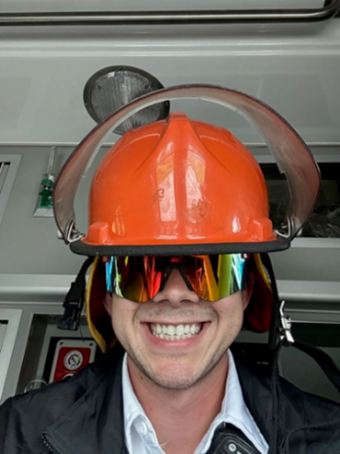
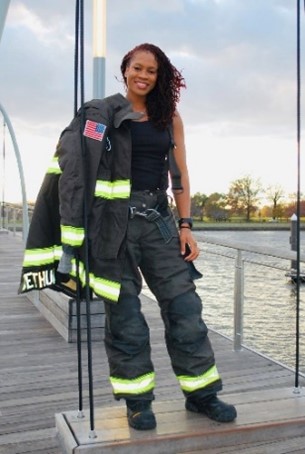
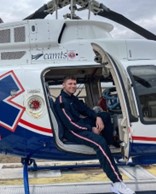
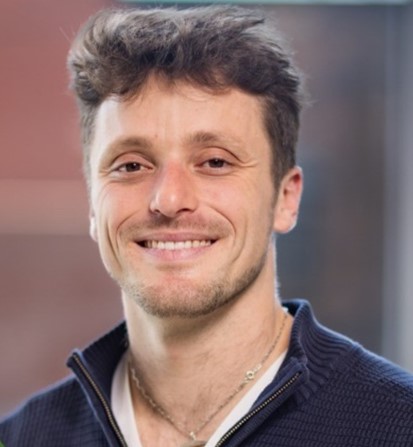
Current Students in the (MSN Entry into Nursing) Program
Jake Drummond, a 4th-semester MSN Entry into Nursing student, earned an Exercise Science degree from the University of Vermont and worked as an EMT in Vermont. Charlie Eddy, a 3rd-semester student, graduated from Grinnell College with a BA in Russian and worked as an EMT in California’s Bay Area. Jamiyah Bethune, also a 3rd-semester student, earned a BA in Health Education from Monmouth University and an MSc in Health from the Institute of Technology at Carlow. She began as a Firefighter/EMT in Arlington, Virginia, in 2020. Ryan Robins, a 3rd-semester student, received a BS in Biological Sciences from Florida State University and became an EMT in 2021, serving in emergency settings.
Each of our students has their reasons for transitioning into a career in Nursing. Their beginnings as EMTs have inspired them to pursue further education, expanding their scope of practice. Jake valued his time in EMS and sees himself advancing through volunteering opportunities. Jake stated, “Although 24-hour shifts were not sustainable, I wanted to continue to work in a dynamic and patient-facing environment that allows me to explore my area of interest and other specialties.” Charlie was inspired by the paramedics who taught him. “Paragons of earlier generations showed me the importance of integrity, vigilance, and teamwork. Juan-Ramirez, a part-time medic who transitioned into nursing, was incredibly patient as he passed his assessment skills to me during the night shift,” says Charlie. Jamiyah’s experience as a firefighter/paramedic has shown her the realities of health care disparities in marginalized communities. “My experience with patients in emergency settings, seeing how systemic inequities, such as limited access to primary care, delayed treatment, and unmanaged chronic conditions, inspired me to be more involved in long-term patient care. As a nurse, I advocate for patients beyond emergency settings to be a part of their healing journey as a provider,” says Jamiyah. Ryan was inspired to build stronger connections with patients, expanding his clinical knowledge to care for the whole person. He loved being a first responder in those critical moments, but he wanted to further his education and expand his scope of practice.
Jamiyah, Charlie, Ryan, and Jake all discuss how working in emergency settings provided a strong foundation in clinical skills, such as vital signs, patient communication, and triage. Charlie noted that “The hospital is not a Ford F-350; there are both subtle and major differences in the nursing profession, including language that has transitioned from OPQRST to COLDSPA.” All students note that their work as an EMS provider has taught them how to stay calm and think critically under pressure. Jake, Jamiyah, and Ryan all agreed that they have experienced an increase in confidence in their clinical skills, as “working in emergency situations is a strong foundation to look for subtle changes in patient status while expanding communication skills to prioritize care in high-stress environments,” says Ryan.
Nursing is a profession that requires in-depth collaboration in various health care settings. Working as an EMS provider connects you with patients while focusing on their immediate stabilization. The patience and presence necessary in nursing allow them to advocate for patients while emphasizing equity in the delivery of care. Ryan discusses the importance of long-term patient care and education in developing and implementing patient plans. He said, “While EMS emphasizes lifesaving interventions, nursing encompasses a broader scope to achieve the best outcomes.” There are other aspects of being an EMS provider that differ from nursing, our MSN Entry into Nursing students discuss. Charlie said, “I miss the radio traffic! Being in a moving network across the city has been important in my career success. However, nursing is a profession that requires a certain level of precision to grasp clinical concepts at a higher magnitude.”
Jake, Jamiyah, Charlie, and Ryan are excited for their nursing journey and continue to advance their education and careers in various settings. From Jake and Charlie’s interest in flight nursing/helicopter response, to Jamiyah’s interest in labor and delivery to address the Black maternal mortality crisis, to Ryan’s goal of becoming a Certified Registered Nurse Anesthetist, our students have the passion and drive to implement change and delivery of care.
*COLDSPA is an acronym used in nursing to assess patient symptoms (Character, Onset, Location, Duration, Severity, Pattern, Associated Factors)
OPQRST is a mnemonic used by EMS providers to assess patient pain and discomfort (Onset, Provocation, Quality, Region, Severity, Time).
Join our email list so you can keep up with the latest opportunities to connect and learn more
Admissions Talks is a series by the admissions team at Johns Hopkins School of Nursing. Hopkins nurses are full partners and leaders in the health care process, and their role in patient care is unmatched. The admissions team is here to offer advice and guidance on how to be a competitive applicant.
Admissions & Financial Aid at the Johns Hopkins School of Nursing
About the Author: Alexander Murphy
Alexander Murphy is the Assistant Director for Diversity Initiatives and Healthcare Organizational Leadership Recruitment at the Johns Hopkins School of Nursing. Alexander is part of the admissions team.
